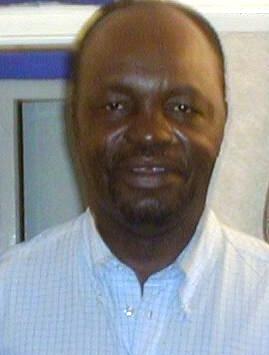|
Thursday December 18, 2014
- Tragedy - more bad news from Sierra Leone.
The
event we had hoped would not be but sadly has
now happened. It is with deep regret that we have to tell you that we have just been informed from Freetown that the good and great Dr Victor Willoughby is dead. The eleventh doctor to succumb to the ravages of the Ebola Virus Disease. Lord have mercy upon us as we battle the ravages of this treacherous and very cunning and elusive beast. Lord have mercy on us. Dr Victor Willoughby, the Freetown-based medico well known and respected by all ages, especially the old folks has gone to the great beyond. He was a good man and many would be weeping and wailing at the loss of a man who never forgot his humble roots. A man known for treating the old folks as he would treat and respect his own mother and father. Sierra Leoneans are still trying to come to grips with this latest tragedy. Rest in Peace. |
And now for the reality check/take on the dreaded Ebola Virus Disease and how it has been gripping the unsuspecting and not so careful in its deadly embrace.
Something is not quite right. Something is amiss and unless and until this is addressed, all efforts by the authorities in Sierra Leone as well as the international community will come to nought, zilch - we mean zero if not below.
Dr Victor Willoughby is the eleventh doctor to succumb to the ravages of the sinister monster that is taking a heavy toll on lives, on families, on communities and by extension on our way of life. It is a challenge that must be grappled with using all our powers of reasoning to come to grips with the problem and hence find a solution.
What are we doing wrong, that is not right?
What can we now do to combat this vicious monster that is taking us apart, creating communities of frightened Sierra Leoneans not knowing where to turn in the midst of the deadly confusion?
At a time like this we should have got the necessary information that should have put us on what we would call a red alert to warn against the dangers of the Ebola Virus Disease and this is where we would call on the Medical and Dental Health Association of Sierra Leone (we used to have such an organisation and we hope it is still alive) to immediately organise a seminar on how best to tackle the disease given the terrible toll it has been taking on the lives of members of the profession.
If eleven out of twelve Sierra Leonean doctors should
succumb to the disease, then something could be wrong, very wrong perhaps in the
way members of the medical profession treat the deadly outbreak.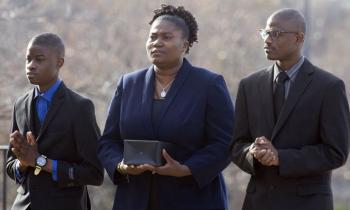
We have heard stories of doctors catching the deadly virus and eventually succumbing to the ravages it inflicts on the body's vital organs and with reports insisting that some of these doctors were not known to have been working directly with Ebola patients. This would suggest that our learned and well educated doctors could well have tested for the disease when things were getting very desperate and with each passing hour the inevitable death sentence on doctors - the opinion leaders in many communities in Sierra Leone. We need not remind ourselves that medical doctors are highly respected people and their opinions matter and that is why we are calling on the Medical and Dental Association to immediately call a seminar to address this all-important life and death matter.
At the risk of causing quit a wave among the medical community we should now boldly ask -
Are Sierra Leone medical doctors in denial - first of the presence of the disease and most importantly of the need to test immediately as soon as the first signs begin to show?
Take the case of the late Dr Martin Salia who was flown to the United States - a very sick man when he arrived because of the delay between the time he was first confirmed as an Ebola Virus Disease victim and when he was finally flown from Freetown to the United States. Doctors who examined him say he arrived in a bad way having lost the use of some key organs in his body. Try as they might the poor man died of the disease. "Nebraska doctors said they used a variety of therapies to try to save Salia, who was unresponsive and in kidney failure and respiratory failure when he arrived Saturday. Those methods included kidney dialysis and a breathing machine. Doctors gave him two powerful drugs to raise his blood pressure, which was collapsing. Those efforts came too late in Salia's illness. He died 36 hours of cardiac arrest after arriving in Omaha.
"The earlier you start supportive care, the better," Smith said. Thomas Geisbert, a professor of microbiology and immunology at the University of Texas Medical Branch, has researched experimental Ebola therapies in animals for years. When getting therapy to people infected with the disease, "every day matters; every hour matters," he says."
Dr Martin Salia, it is to be recalled had himself tested
for the virus when he felt that something was not quite right with his health.
The first test was negative. However the man knew that something was not quite
right and so a couple of days later, he again presented himself for testing and
that was when he was confirmed as positive - that he had been infected by the
sinister and deceptive killer. 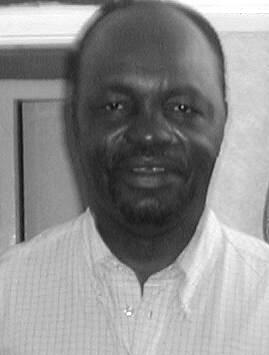
Explanations by those in the know that it is possible to prove negative in the first test as was the case for Dr Martin Salia does not hold water with us - no matter what the so-called virus load excuse is. This would mean that this kind of testing is not effective and a new efficient testing method must be developed so that treatment can start from day one and not wait until the virus load gets to a somewhat appreciable level that would by then see the virus ravaging and savaging body organs and tissues.
When we reported the death of Dr Martin Salia, we called for an investigation into the circumstances leading to his death so that lessons could be learnt and mistakes corrected. Alas no one responded.
And now this. We have lost another doctor. Dr Victor Willoughby is, we have to state here, nobody's fool. He was smart, could talk news and current affairs within and outside Sierra Leone with a clear mind and a sense of direction and knowledge that impressed many a journalist. He just loved getting into discussions with members of the Fourth Estate and those who knew him in the medical profession say he was "one in a million" when it came to the profession and patients he interacted with can tell you about a man who treated them with respect and dignity. He would be quite frank and open when it comes to saying things as they were - taking into consideration the repercussions. He was truly a man for all seasons.
So what went wrong?
We ask this question over and over again because we know the man, we know how he questions things, how he would bring up topics of interest to him in his bid to know more and contribute his own share to any discussion in a number of locations all around the country and more so the capital Freetown where he was indeed one of the many socialites that graced many a gathering.
So what went wrong? Did our very own man - the good and great Dr Victor Willoughby get it wrong?
He must have because we have been informed from Freetown that he was one of several doctors who treated one former banker in Freetown who later died of the dreaded disease. Many in Freetown say on hearing of this death and knowing that the good doctor was one of the few who treated him, he should have gone straight ahead and had himself tested. If we know him well and we think we know - he would have been the first to advise any colleague who would have treated the late banker to test. That was the kind of Dr Victor Willoughby that we knew.
Dr Victor Willoughby's passing away has raised a number
of questions with doubts gaining the upper scale on whether people can really
recover from the ravages of the Ebola Virus Disease. They point to the number of
doctors - eleven out of twelve who have succumbed to the ravages of the disease
and have started a wave of rumours that those patients who had been discharged
from the Sierra Leonean-run
Treatment Centre at Hastings could really not have been suffering
from the disease as claimed by the government. At least not all of them its
claimed. They ask why the rat of a President is never photographed shaking the
hands of nor hugging the cleared patients as could be seen in one photo of US
President Obama.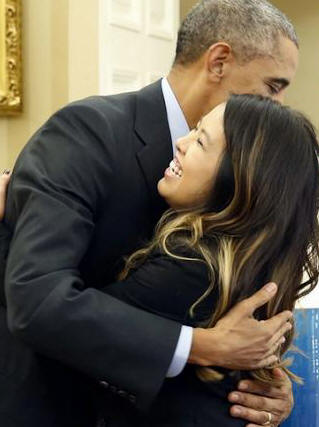
These doubts have now resurfaced - which calls for more to be done.
Are we living in denial?
Do medical doctors "peppeh docta" themselves first when symptoms begin to show like a headache and fever and believe that it could only be some minor malaria attack?
We have seen the story in the New York Times of one Dr Crozier who contracted the disease while treating Ebola patients at the government hospital in Kenema. His story and that of others who were treated abroad and recovered should tell us that we are not doing things right and in that respect we should start with the re-education of our entire medical teams throughout the country.
His account is aptly titled - "An Ebola Doctor's Return from the Edge of Death."
His account offers glimpses of the hardships and dangers that have confronted doctors and nurses who volunteered to fight an epidemic that has claimed the lives of more than 330 health care workers — most of them African — and of the desperate need that has drawn them to the front lines. Dr. Crozier told of three brothers, just 4, 5 and 11, who fought for their lives on his ward in Kenema. Not long after, he lay near death in an isolation room at Emory, with his mother reading him poetry through an intercom. Dr. Crozier, soft-spoken and genial, is now on the mend in Phoenix, where his parents and sister live. But the disease has taken its toll. Six-foot-5 and 220 pounds before he got Ebola, he has lost 30 pounds, much of it muscle. He tires easily, but has begun a grueling physical therapy program to rebuild wasted muscles.
Doctors say his recovery has taught them that aggressive treatments, even life-support measures like ventilators and dialysis, can save some Ebola patients. Dr. Bruce S. Ribner, who leads the Emory team, said that until recently the general practice was not to bother intubating Ebola patients or put them on dialysis, because if they got that sick they were going to die. “One of the things Ian taught us was, guess what, you can get sick enough to need those interventions and you can still walk out of the hospital,” Dr. Ribner said. “I think it has sent a message to our colleagues around the world.”
It was even more wrenching than he had imagined — the
sights, the sounds, the smells, the steady stream of deaths. There were often 60
to 80 patients, sometimes more, suspected and confirmed cases, from all over the
country. They arrived day and night. Blood, stool and vomit were ever-present
though cleaners mopped with chlorine several times a day. Choruses of delirious
patients with bloodshot, eerily vacant eyes would shout “Doctor! Doctor!” over
and over. Some were too sick to clean or feed themselves, and there were never
enough staff members to tend to them. A patient might lie in one bed and a
corpse in the next, waiting to be disinfected, bagged and taken away. “Those
isolation wards are horrible places,” Dr. Crozier said. 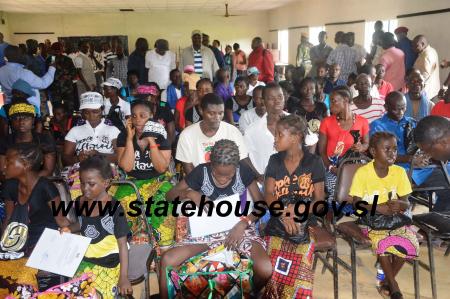
One night, the three young brothers were brought in. All were infected. Their mother had died, and their father was absent. “I didn’t think they’d survive,” Dr. Crozier said.
The oldest, Victor, 11, was also the sickest. Dr. Crozier, the oldest of four children in his family, saw a bit of himself in Victor. The boy had taken on the role of father, and even when he was lying on a mattress on the floor, soiled by vomit and diarrhea, the younger ones, Shaku and Ibrahim, would not leave him. “They were this little band of brothers,” Dr. Crozier said. Sometimes he wished he could rip off his protective gear and hold them. The last thing he would do at night was make sure they and the other children were fed. Returning to the ward each morning, he kept expecting to find that one or more of the brothers had died. But they kept surprising him. They recovered enough to race around the ward with other children — including two boys named Success and Courage — playing, laughing and making a nuisance of themselves, Dr. Crozier said.
“In such a dark place, they were little cracks of joy,” he said. The brothers survived, but others like them did not. Many local nurses had contracted Ebola and died in Kenema. Aid workers from other countries also became infected, and Dr. Crozier arranged medical evacuation flights for several of them. He never dreamed he would become a passenger on that plane. On the morning of Saturday, Sept. 6, during rounds on the ward, he developed a fever and a headache. He isolated himself in his hotel, hoping he had malaria. A colleague brought equipment so that Dr. Crozier could draw his own blood for an Ebola test. She called him the next morning, crying: His Ebola test was positive.
He had no idea how he had become infected. He has no memory of the three weeks after he arrived at Emory. The isolation unit there was built 12 years ago at the request of the Centers for Disease Control and Prevention, which is less than a mile away. Dr. Varkey, the infectious-disease specialist, said there were warning signs early on that Dr. Crozier might become severely ill. The viral load in his blood was extremely high, more than 100 times that of the other patients Emory had treated. And he was becoming delirious, a sign of encephalitis. Doctors do not know why some patients become so much sicker than others. Dr. Crozier’s age may have worked against him: People over 40 tend to have worse outcomes than younger ones.
The family had been warned that Ebola often causes such intense diarrhea that patients can lose eight or 10 quarts of fluid a day, and Dr. Crozier was heading toward that stage. He would be pumped full of fluids and salts to prevent dehydration, which kills many Ebola patients. The family thought that once he got through that phase, he would start to improve.
Instead he got worse. By Friday he was struggling to breathe, his chest heaving. The sight tore at his relatives. On Sunday morning, he was placed on a ventilator.
“It seemed to signify final stages,” said his sister,
Anne.
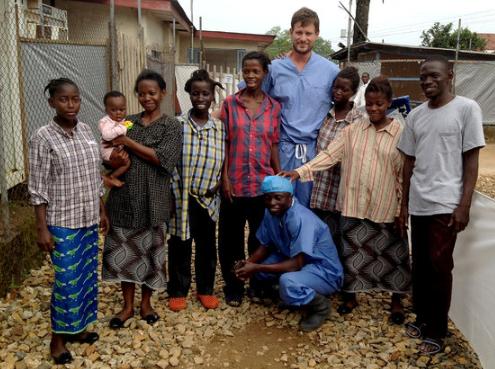
A nurse who had also been infected in Kenema, Will Pooley — whose evacuation Dr. Crozier had supervised — flew to Emory from England and donated several units of plasma. Survivors have antibodies that may help fight off the virus, and a number of patients have been given such transfusions. Dr. Crozier’s virus levels began dropping, but his kidneys failed, and he was connected to a dialysis machine. He had swelled up with 20 pounds of excess fluid, and all that his relatives could see through the window were tubes, machines and a bloated face they barely recognized. He had begun having abnormal heart rhythms. Doctors warned that he might not survive. He was on the ventilator for 12 days, and on dialysis for 24. Members of his family read him emails from friends, played his favorite music and told him over and over that he would be all right. They gave his nurses dozens of family photos to tape to his walls. Mrs. Crozier had been a nurse-midwife, and her training made her painfully aware of signs that her son was deteriorating.
“The really tough part was the thought that he was going to die and that I was not going to be able to touch him before he left the earth,” she said. “So he was either going to go in a body bag to the C.D.C. for research, or he was going to be incinerated rapidly.” He began to recover physically. But there were ominous signs that he might have suffered brain damage: His eyes wandered in different directions, and he took a long time to wake up when his sedation was withdrawn. “I thought we’d be discharging him to a nursing home as a cognitively impaired person,” said Dr. Colleen Kraft, one of his doctors. She said his difficult course had left her in a “dark psychological place” that for a while had made her feel hesitant about treating more Ebola patients, for fear that they might be as sick as Dr. Crozier.
When he finally did open his eyes at the end of September, a few days after his 44th birthday, he looked around the room in a way that reminded his sister, Anne, of a newborn baby. She spoke softly through the intercom, as if he were a child. Her voice, reassuring him that he was all right, is the first thing he remembers. At first, he had trouble making conversation. But he grilled doctors about his lab results, so the family knew his mind was intact. There are scarlike lesions on his retinas, and it is not clear whether they are getting better or worse. Though people around him do not notice it, he says his mind is not working as fast as it should, and he sometimes has trouble thinking of the word he wants to say. “It’s a fear,” he said. “Am I going to be myself again, completely?”
Dr. Crozier hopes to return to West Africa by February or March to help treat more Ebola patients. Survivors are thought to be immune to the strain that infected them, so he figures he has built-in protection.
“There’s still a great deal left to be done,” he said.
More on this later but we just wanted to reaffirm that indeed it is possible that people could recover from the ravages of the Ebola Virus Disease if promptly detected and treatment is commenced immediately.
So this is our humble suggestion based on what we know so far.
All who have been in physical touch with the late doctor must be immediately tested. These should include relations, friends and staff of various clinics as well as staff at his famous Rawdon Street office in downtown Freetown.
Rest in perfect peace Dr Victor Willoughby. You have done your bit.
We pray that the Good Lord in His mercy will give you the peace only He can.
Amen


